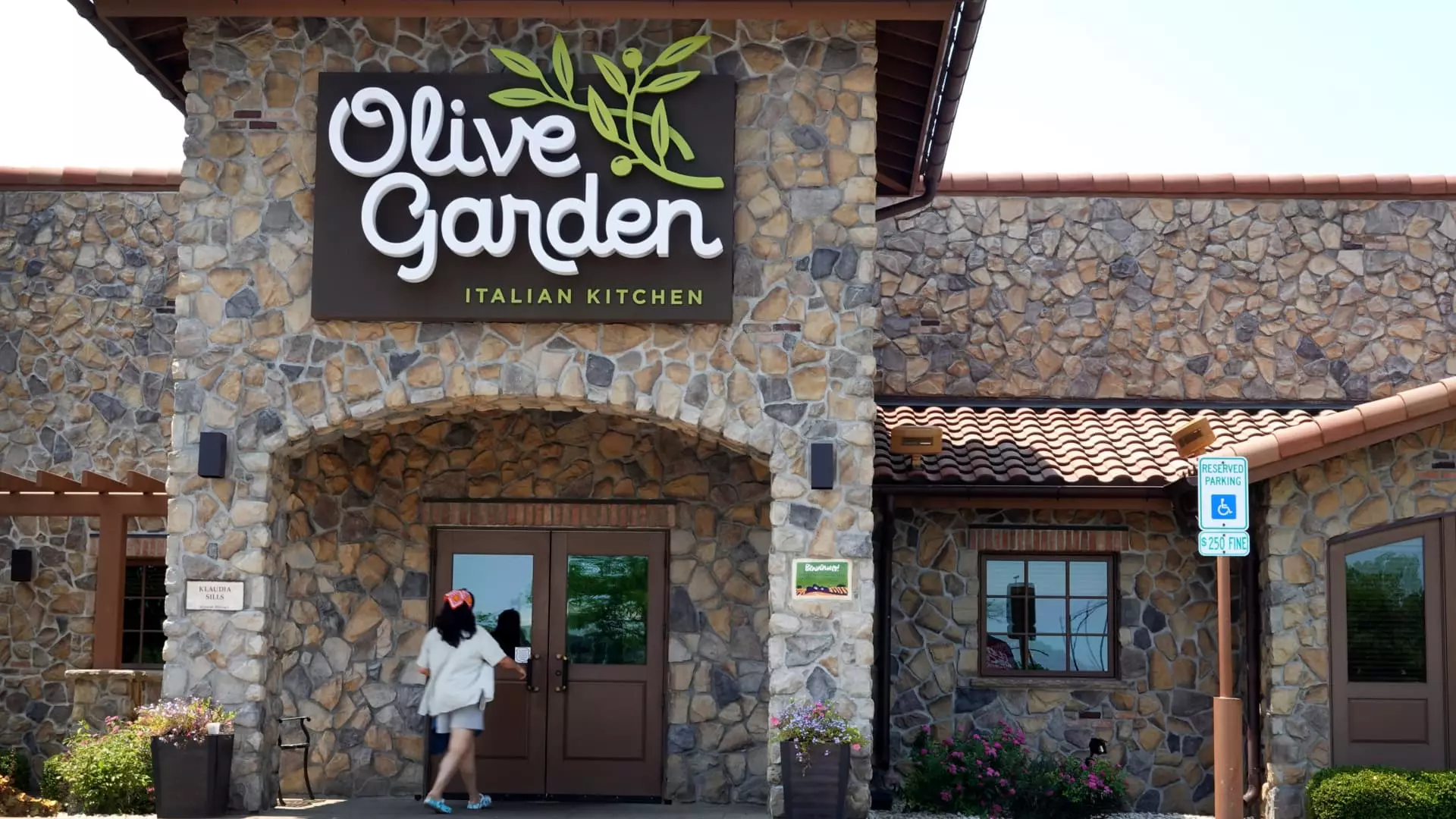Darden Restaurants, known for its diverse portfolio of dining establishments including Olive Garden and the Capital Grille, has recently released its quarterly earnings, revealing results that fell short of analysts’ expectations. The earnings report highlighted a decline in revenue and profitability, prompting discussions about the broader implications for the restaurant industry. CEO Rick Cardenas acknowledged that while the company did not meet its targets, he remains optimistic, emphasizing the long-term strategies being implemented to navigate these challenges.
The reported earnings per share of $1.75 were below the anticipated $1.83, and overall revenue fell to $2.76 billion, again short of the forecasted $2.8 billion. Such discrepancies reflect not just internal issues but also external pressures affecting consumer spending in the restaurant sector. The decline in same-store sales, particularly a 2.9% drop at Olive Garden, raises concerns about changing consumer preferences and economic conditions that influence dining choices.
The data indicate that traffic to Darden’s restaurants sharply declined in July, which the company attributes to broader shifts in consumer behavior, possibly influenced by economic fluctuations or increased competition. The results from the fine dining segment, which reported same-store sales down by 6%, further underscore the challenges facing upscale dining options as consumers may prioritize value amidst economic uncertainty. Conversely, LongHorn Steakhouse emerged as a bright spot, showcasing a 3.7% increase in same-store sales, hinting at a possible consumer shift towards more accessible dining options during difficult economic times.
In response to the downturn, Darden is planning to revive popular promotions like the Never Ending Pasta Bowl at Olive Garden, aiming to attract returning customers. This tactic underscores the company’s commitment to not only recover lost sales but also to innovate in appealing to the dining public’s evolving tastes and needs.
Darden’s decision to maintain its full-year forecast, projecting earnings per share between $9.40 to $9.60 and net sales between $11.8 billion and $11.9 billion, suggests a confidence in the company’s ability to navigate these turbulent waters. This confidence is essential for reassuring investors and stakeholders that the brand remains robust enough to weather current economic challenges while focusing on its long-term ambitions.
Cardenas’s focus on the health of the business rather than immediate returns reflects a strategic mindset that could pay dividends in the future. By investing in brand development and customer experience rather than short-term gains, Darden aims to foster loyalty that could buffer against fluctuating market trends.
The premarket rise in Darden’s stock by approximately 10% despite disappointing earnings suggests that the market may believe in the company’s long-term potential. Investors seem reassured by the commitment to enhance the dining experience and respond adaptively to market demands. However, as the company moves forward, it will be crucial for Darden to closely monitor consumer trends and be ready to pivot in response to the ever-changing economic landscape.
While Darden Restaurants presents a challenging quarterly report, its leadership believes in the strategies being employed to improve sales and customer experience in the long run. The restaurant industry’s ability to adapt and innovate in the face of challenges will ultimately determine its success in a competitive and rapidly changing market.

